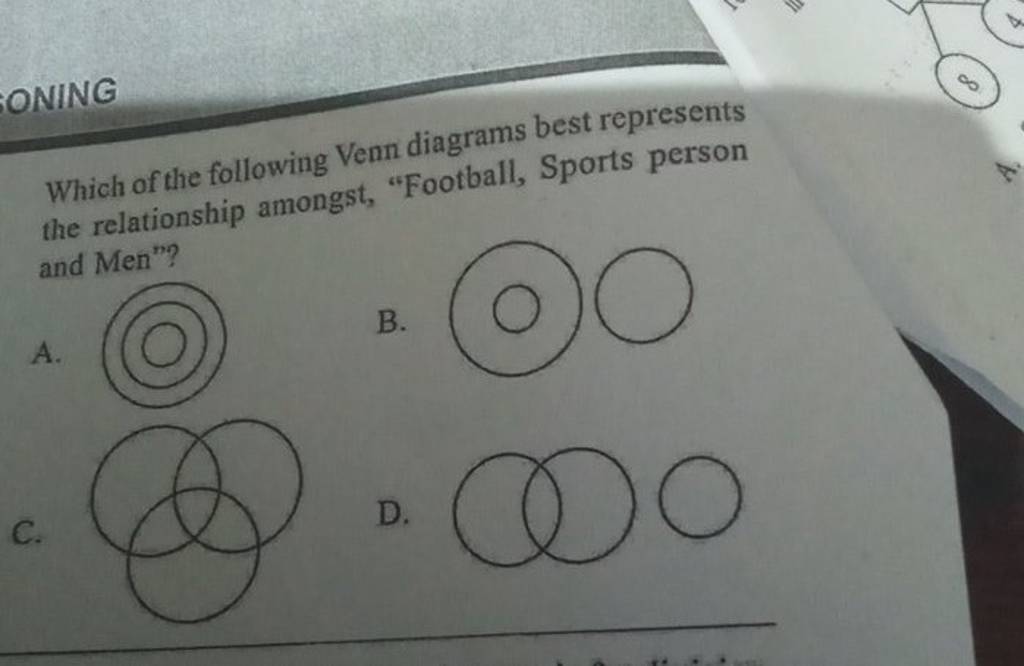PhD in Culinary Arts: Complete Guide to Advanced Culinary Education
Understand PhD programs in culinary arts
Yes, you can earn a PhD in culinary arts, though these programs are comparatively specialized and offer by select institutions worldwide. A doctorate in culinary arts represent the highest level of academic achievement in the culinary field, combine advanced culinary techniques with rigorous research methodology and scholarly inquiry.
PhD programs in culinary arts differ importantly from traditional culinary school programs or regular master’s degrees. These doctoral programs focus on original research, food science innovation, cultural food studies, and the development of new culinary theories and practices. Students pursue this advanced degree typically spend three to five years conduct independent research under faculty supervision.
Program structure and requirements
Doctoral programs in culinary arts typically require students to complete coursework in research methodology, food science, nutrition, culinary history, and cultural studies. The curriculum oftentimes includes advanced statistics, food chemistry, sensory analysis, and sustainable food systems. Students must besides demonstrate proficiency in multiple research methods, both quantitative and qualitative.
Most programs require students to pass comprehensive examinations after complete their coursework. These exams test knowledge across all areas of study and determine readiness to proceed to the dissertation phase. The dissertation represent original research that contribute new knowledge to the culinary arts field.
Language requirements vary by institution, but many programs require proficiency in at least one foreign language relevant to the student’s research area. This requirement reflects the global nature of culinary traditions and the need to access international research sources.
Research areas and specializations
PhD candidates in culinary arts can pursue research in numerous specialized areas. Food science and technology represent popular research tracks, focus on molecular gastronomy, food preservation techniques, and innovative cooking methods. Students might investigate how different cooking processes affect nutritional content or develop new food safety protocols.
Cultural and historical food studies offer another rich research area. Scholars examine how culinary traditions develop, spread, and evolve across different societies. This research oftentimes involves anthropological methods and can contribute to understand cultural identity, migration patterns, and social change through food practices.
Sustainability and environmental impact studies are progressively important research areas. PhD candidates might investigate sustainable farming practices, food waste reduction, or the environmental impact of different dietary patterns. This research oftentimes intersect with policy studies and can influence industry practices.
Nutrition and health focus research examine the relationship between culinary practices and human health. Students might study how cooking methods affect nutrient bioavailability or develop therapeutic cooking approaches for specific health conditions.

Source: meridiancycle.com
Admission requirements
Admission to PhD programs in culinary arts is extremely competitive and require strong academic credentials. Most programs require applicants to hold a master’s degree in culinary arts, food science, nutrition, or a related field. Some programs may accept exceptional candidates with bachelor’s degrees and significant professional experience.
Professional culinary experience is typically required, though the amountvariesy by program. Many successful applicants have work as executive chefs, culinary instructors, food writers, or in food product development. This practical experience provide the foundation for understand real world applications of research.
Academic performance indicators include undergraduate and graduate GPA, standardized test scores, and previous research experience. Many programs require GRE scores, though some have moved aside from this requirement. International students must demonstrateEnglishh proficiency throughTOEFLl orIELTSs scores.
Application materials typically include a detailed research proposal outline the candidate’s intended area of study. This proposal should demonstrate familiarity with exist research and identify gap the candidate hope to address. Letters of recommendation from academic and professional references are essential, as is a personal statement explain career goals and motivation for doctoral study.
Notable institutions and programs
Several prestigious institutions offer PhD programs in culinary arts or intimately relate fields. The culinary institute of America have partnerships with universities offer doctoral pathways. Johnson & wales university provide advanced degree options that can lead to doctoral study.
International options include programs at universities in France, Italy, and other countries with strong culinary traditions. These programs oftentimes emphasize different aspects of culinary research, reflect regional food cultures and academic traditions.
Some students pursue PhDs in relate fields such as food science, nutrition, anthropology, or hospitality management, so focus their research on culinary topics. This approach can provide broader academic opportunities while distillery allow specialization in culinary arts.
Career opportunities
PhD graduates in culinary arts pursue diverse career paths that leverage their advanced research skills and deep culinary knowledge. Academic careers represent one major pathway, with graduates become professors at culinary schools, universities, and community colleges. These positions involve teaching, research, and service to the academic community.
Research and development roles in the food industry offer another career track. Major food companies, equipment manufacturers, and ingredient suppliers employ PhD level researchers to develop new products, improve exist offerings, and solve technical challenges. These positions oftentimes command high salaries and offer opportunities to influence industry practices.
Consulting represent a growth field for culinary artPhDsdsThesese professionals advise restaurants, food companies, government agencies, annon-profitit organizations on various culinary and food relate issues. Specializations might include menu development, food safety, sustainability practices, or cultural authenticity.
Writing and media careers allow PhD graduates to share their expertise with broader audiences. Food writers, cookbook authors, television personalities, and digital content creators with doctoral credentials frequently command respect and higher compensation than those without advanced degrees.
Policy and advocacy work attract graduates interested in address food system challenges. These professionals might work for government agencies, non-profit organizations, or international bodies address issues like food security, nutrition policy, or sustainable agriculture.
Financial considerations
PhD programs in culinary arts vary importantly in cost and funding availability. Some programs offer full funding through research assistantships, teaching assistantships, or fellowships. These positions typically cover tuition and provide a modest living stipend in exchange for research or teaching duties.
Students should cautiously evaluate the total cost of doctoral study, include tuition, fees, living expenses, and opportunity costs. The time investment is substantial, typically require three to five years of full-time study. This represents significant foregone earnings for working professionals.
Notwithstanding, the long term financial benefits can be substantial. PhD graduates much earn importantly more than those with bachelor’s or master’s degrees, especially in research, consulting, and senior management positions. The degree besides provide job security and advancement opportunities not available to those with less education.
Challenges and considerations
Pursue a PhD in culinary arts present unique challenges that prospective students should cautiously consider. The interdisciplinary nature of the field require mastery of diverse subjects, from food science and nutrition to cultural studies and business principles. This breadth can be intellectually stimulating but besides demand.
Balance theoretical research with practical culinary skills require careful attention. Some students worry about lose touch with hands on cooking during years of academic study. Successful programs address this concern by incorporate practical components and encourage continued professional engagement.
The comparatively small size of the field mean fewer job opportunities compare to more establish academic disciplines. Nonetheless, this besides create opportunities for graduates to become leaders in an emerge field and shape its future development.
Time management become crucial as students balance coursework, research, teach responsibilities, and oftentimes part-time work to support themselves. The self direct nature of doctoral study require strong organizational skills and personal motivation.
Future trends and opportunities
The field of culinary arts continue to evolve, create new opportunities fPhDphd level research and expertise. Technology integration in cooking and food service present numerous research possibilities, from artificial intelligence applications in recipe development to automation in commercial kitchens.
Climate change and sustainability concerns are drive demand for research into environmentally responsible food systems. PhD graduates with expertise in sustainable culinary practices are wellspring position to address these challenges through research, consulting, and policy work.
Globalization continue to expand interest in diverse culinary traditions, create opportunities for cultural food studies research. Understand how traditional practices can preservedrve while adapt to modern contexts represent an important area of inquiry.
Health and wellness trends are increase demand for research into the relationship between culinary practices and human health. PhD graduates can contribute to develop evidence base approaches to therapeutic cooking and nutrition education.

Source: alamy.com
Make the decision
Decide whether to pursue a PhD in culinary arts require careful consideration of personal goals, career aspirations, and life circumstances. The degree is virtually valuable for individuals seek careers in research, academia, high level consulting, or leadership positions in the food industry.
Prospective students should frankly assess their research interests and academic abilities. Doctoral study require sustain intellectual engagement with complex problems and the ability to work severally for extended periods. Strong writing skills are essential, as is comfort with statistical analysis and research methodology.
Network within the culinary arts academic community can provide valuable insights into program quality and career prospects. Attend academic conferences, connect with current students and graduates, and speak with faculty members can help inform decision-making.
Consider alternative pathways to career goals. Some positions traditionally require PhDs are become accessible to those with master’s degrees and significant experience. Conversely, some emerge opportunities specifically value doctoral level training and research skills.
The decision to pursue a PhD in culinary arts represent a significant commitment that can transform both career prospects and personal understanding of food and cooking. For the right candidates, it offers the opportunity to contribute meaningfully to an evolve field while build expertise that command respect and open doors to diverse career opportunities.



